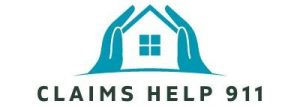
Home insurance claims can be overwhelming, especially when you’re already dealing with property damage or loss. While your insurance policy is designed to provide financial protection, the process of negotiating a claim with an insurance adjuster can be challenging. Knowing the right tips for dealing with home insurance adjusters can help you avoid common pitfalls and maximize your settlement.
At Claims Help 911, we specialize in assisting Florida homeowners with navigating the insurance claims process. This blog will guide you through best practices for interacting with adjusters, documenting damage, and securing the compensation you deserve.
Understanding the Role of Home Insurance Adjusters
What Is a Home Insurance Adjuster?
A home insurance adjuster is a professional employed or contracted by your insurance company to evaluate your claim and determine the payout. Their responsibilities include:
– Inspecting property damage.
– Reviewing your policy to confirm coverage.
– Calculating the cost of repairs or replacements.
– Offering a settlement based on their assessment.
Types of Adjusters
There are three main types of adjusters you may encounter:
- Staff Adjusters: Direct employees of your insurance company.
- Independent Adjusters: Contractors hired by insurers to handle claims.
- Public Adjusters: Licensed professionals who work for policyholders to advocate for a fair settlement.
Common Challenges When Dealing with Home Insurance Adjusters
1. Low Settlement Offers
Insurance companies aim to minimize payouts, often offering settlements that don’t fully cover repair costs.
2. Delays in Claim Processing
Prolonged claim processing can delay repairs and increase stress for homeowners.
3. Disputes Over Coverage
Insurers may deny claims by citing policy exclusions or pre-existing conditions.
Tips for Dealing with Home Insurance Adjusters
1. Understand Your Policy
Before filing a claim, review your homeowner’s insurance policy to understand:
– What damages are covered.
– Exclusions and limitations.
– Your deductible amount.
Knowing your policy empowers you to address discrepancies during the claims process.
2. Document Everything
Comprehensive documentation is key to a successful claim. After discovering damage, immediately:
– Take clear photos and videos of affected areas.
– Create a detailed inventory of damaged items, including their approximate value.
– Keep receipts for temporary repairs, lodging, and other related expenses.
3. Report the Damage Promptly
Most insurance policies require timely reporting of damage. Delaying your claim can result in denied coverage or reduced payouts.
– Contact your insurance company as soon as possible.
– Provide a brief description of the damage and its cause.
4. Be Present During the Inspection
When the adjuster visits your property:
– Point out all visible damage.
– Share your documentation, including photos and repair estimates.
– Take notes on what the adjuster says and document the inspection.
5. Avoid Making Repairs Before the Inspection
While it’s important to mitigate further damage (e.g., tarping a roof or boarding up windows), avoid making permanent repairs until the adjuster has inspected your property. Permanent fixes may complicate your claim and reduce your payout.
6. Be Honest but Strategic
Provide accurate information about the damage, but be mindful not to overshare. Stick to the facts and avoid admitting fault or speculating about the cause of damage.
7. Get Your Own Estimates
Hire a reputable contractor to provide repair or replacement estimates. Having an independent assessment helps counter low settlement offers from the adjuster.
8. Don’t Accept the First Offer
The first settlement offer is often lower than what you’re entitled to. Review the offer carefully and, if necessary, negotiate for a higher payout with supporting evidence.
9. Consider Hiring a Public Adjuster
Public adjusters work exclusively for policyholders, advocating for a fair settlement. They handle negotiations, documentation, and communication with the insurer, saving you time and stress.
Avoiding Common Pitfalls
1. Not Reading the Fine Print
Failing to understand your policy’s exclusions and limitations can lead to misunderstandings about coverage. Always review your policy carefully.
2. Underestimating the Damage
Some damages, such as water intrusion or mold growth, may not be immediately visible. Professional inspections ensure all issues are identified and included in your claim.
3. Relying Solely on the Insurance Adjuster
Remember that the adjuster works for the insurance company, not you. Consider hiring a public adjuster to represent your interests.
4. Missing Deadlines
Insurance claims have strict deadlines for filing and submitting documentation. Keep track of these deadlines to avoid losing coverage.
5. Settling Too Quickly
Rushing to accept a settlement can leave you undercompensated. Take the time to review offers and gather evidence to support a fair payout.
The Role of Public Adjusters in the Claims Process
What Do Public Adjusters Do?
Public adjusters advocate for policyholders, handling every aspect of the claims process, including:
– Assessing and documenting damage.
– Preparing and submitting claims.
– Negotiating settlements with the insurance company.
Benefits of Hiring a Public Adjuster
– Maximized Settlements: Public adjusters ensure all damages are accounted for and valued accurately.
– Stress Reduction: They handle paperwork, inspections, and communication with the insurer.
– Expert Negotiation: Public adjusters use their expertise to challenge low settlement offers and secure fair compensation.
Real-Life Success Stories
Hurricane Damage Settlement
A Florida homeowner faced significant roof damage after a hurricane. The insurance adjuster’s initial settlement offer was insufficient to cover repairs. Claims Help 911’s public adjusters negotiated a payout that fully covered the costs, saving the homeowner thousands of dollars.
Water Damage Recovery
A family in Miami experienced water damage due to a burst pipe. The initial claim was denied due to alleged pre-existing conditions. With Claims Help 911’s support, the denial was overturned, and the family received full coverage for repairs.
Fire Damage Resolution
A business owner struggled with an undervalued settlement after fire damage. Claims Help 911 documented hidden damages and successfully secured a significantly higher payout.
Why Choose Claims Help 911?
At Claims Help 911, we’re committed to helping Florida homeowners navigate the complexities of tips for dealing with home insurance adjusters and securing fair settlements. Our team provides:
– Comprehensive damage assessments.
– Professional claim preparation and submission.
– Expert negotiation to maximize your payout.
– Personalized support throughout the claims process.
Conclusion
Dealing with home insurance adjusters can be challenging, but with the right strategies and support, you can avoid common pitfalls and secure the compensation you deserve. By understanding your policy, documenting damage thoroughly, and considering professional assistance, you can navigate the claims process with confidence.
At Claims Help 911, we’re here to simplify the process and advocate for your best interests. Whether you’re filing a claim for hurricane damage, water leaks, or fire-related losses, our team has the expertise and dedication to help. Visit our website to learn more about our services and take the first step toward resolving your claim https://www.claimshelp911.com
Don’t let the claims process overwhelm you. Partner with Claims Help 911 for professional guidance and peace of mind.
